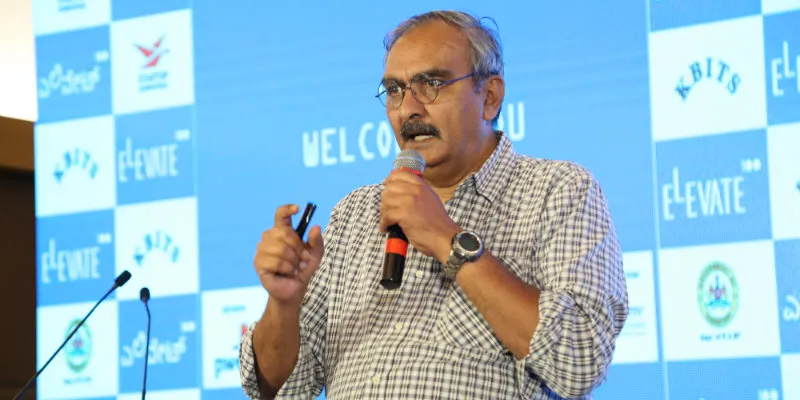Things that venture capitalists look for in startups
Entrepreneur-turned-investor MJ Aravind gives a heads up to prospective entrepreneurs on the things that venture capitalists look for in startups before investing.
Being an entrepreneur is never easy. It comes with its own set of challenges and hurdles and every individual has to navigate their way through them. At the outset, finance/funding becomes one of the primary hurdles to overcome. For an idea to become successful, it needs to be well executed and one will need money to do that. If one is dipping into one’s savings, borrowing from friends and family or crowd-sourcing to come up with the requisite amounts, things are relatively easy.
But it becomes quite a task if one has to find an external investor to invest in your enterprise. It brings with it the hassles of dates, proposals, match-making sessions, compatibility, compromises and commitment.
MJ Aravind, Honorary Secretary of The Association of People with Disability and former Partner, Artisan Ventures, sought to give a heads up to prospective entrepreneurs on the things that venture capitalists look for in startups before investing in them, at a session on “How to date a VC/convert interest to term sheet”, at ELEVATE 100 conference in Bengaluru on Tuesday.
An initiative of the Karnataka government, ELEVATE 100 aims to identify 100 most promising startups and provide them the funds or support they need.
“I have been on both the sides and must admit that the entrepreneurial side was more exciting,” said Aravind, an entrepreneur-turned-venture-capitalist, even as he listed the criteria VCs employed while choosing a startup.
According to him, VCs judge founders in terms of access to the decision maker, speed of decision making, security and collateral requirements, and financial and emotional liability.
They also consider if the initial capital has come from from the founder’s savings, government grants, loans, or funds from other sources. “ Looking at a similar matrix, an investor decides his/her risk-taking ability, and one must not forget that the need is mutual. The investor needs entrepreneur as much as the entrepreneur needs him.”

Talking from his own experience as a VC, he said the long odds are that every capitalists on an average receives 200 proposals every year, and 40 are filtered for a second meeting, following which 12 are chosen for due diligence and in the end one or two deals get finalised. The first meeting lasts for an hour.
In that first meeting, the things that usually go through an investor’s mind are whether he/she buys into the problem, whether he likes the proposed solution and whether it is feasible to implement.
“He also looks into if there is a paying customer and, if yes, how many of them,” said Aravind.
The focus then shifts to the market. Questions regarding the sector and its growth, addressable market size, potential market share, competitive landscape, what and why a customer will pay are addressed.
The best industry growth rate is more than 33 percent and the worst is less than 10 percent. The best addressable market size is more than $1 billion and the worst is less than $10 million. The startups are measured on a scale of 1 to 10 on every question.
As to the number of founders in a startup, between two and five founders are considered ideal, according to Aravind. “There are very few companies with more than five founders and doing well, with the exception of Infosys and a few others. However, one should make sure that the co-founders share a good rapport between them.”
He said that like in a relationship, every partner must have an opinion and critique themselves before deciding what is best for both. Difference in backgrounds can bring various areas of expertise in the relationship, which will be critical to the success of both company and investors.
Aravind highlighted that an investor too faces pressures in terms of the fund’s resolve to commit investment in a particular time frame and their performance being measured by how are the funds deployed and returns thereupon.
Since funds are committed for a longer duration of four-seven years in an early-stage venture, Aravind advised entrepreneurs to have a complete check of chemistry and make sure that both are well aligned.
He also spoke about the cursing points and advised startups to make as many industry and seminar visits as possible to build relationships and engagement. “One should attend the various events and network in the industry and in no time the venture capitalists will start recognising them and their efforts.”
Signing off, he said the best pick-up line is to keep a good two-page executive summary always handy.







